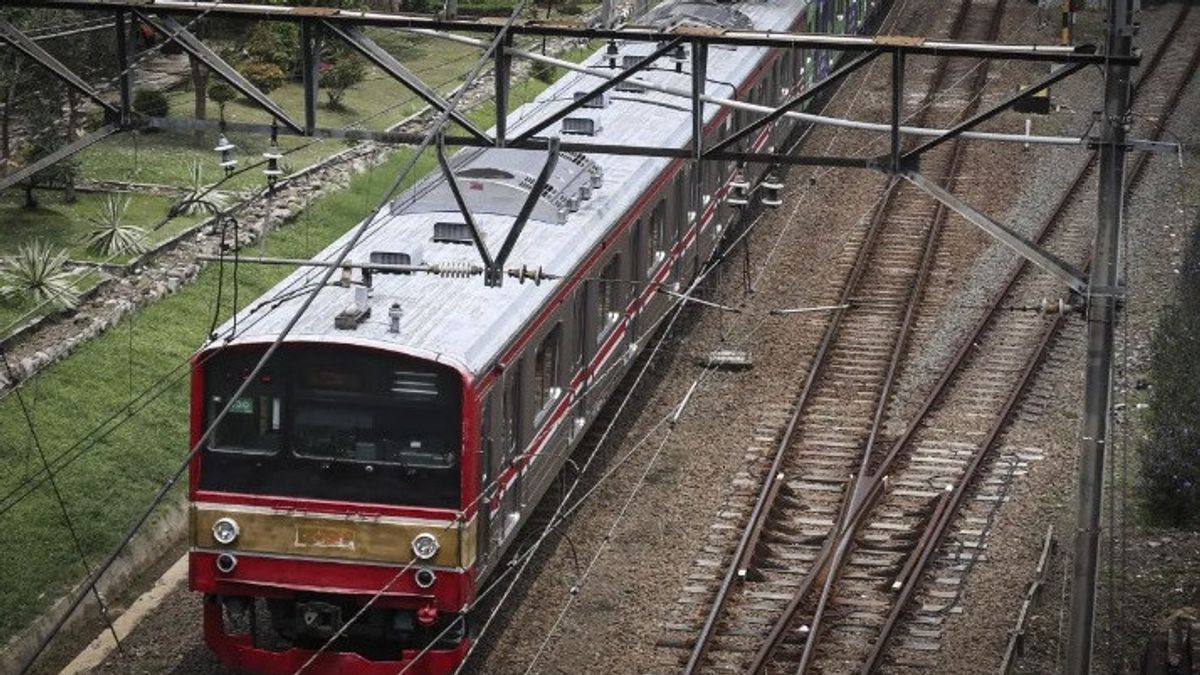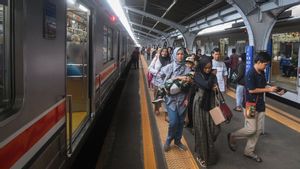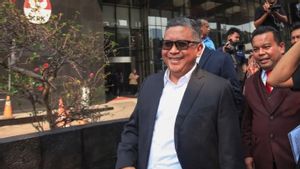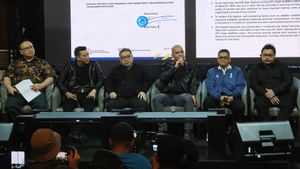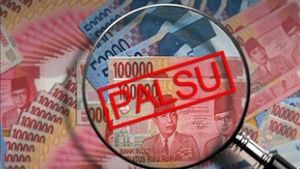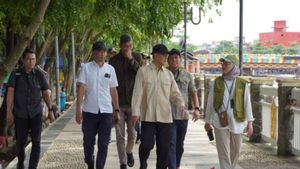JAKARTA The Electric Rail Train (KRL) subsidy scheme is based on a Population Identification Number (NIK) which is considered unreasonable. This is not the first time the government has discussed that KRL tickets are not single, aka different depending on passenger income.
Aditya Dwi Laksana from the Indonesian Transportation Society said the government should provide incentives to the public to want to leave private vehicles, one of which is by providing safe, comfortable, and integrated public transportation, but still affordable.
The plan to implement a NIK-based KRL ticket in addition to causing confusion among the public is also predicted to interfere with the master plan of public transport users in Jakarta, Bogor, Depok, Tangerang, and Bekasi (Jabodetabek) to become 60 percent of the movement in 2030.
Previously, the discussion about the KRL tariff was also busy on social media in 2022, when the Minister of Transportation Budi Karya Sumadi stated that in 2023 the Jabodetabek electric train tariff would be adjusted for high-income people.
At that time, the government discussed that the payment scheme would be separated between capable and underprivileged passengers through card tickets. Even so, he did not specify what kind of scheme the scheme would be.
Since the disclosure of the Financial Note Book document on the State Revenue and Expenditure Budget Plan (RAPBN) for Fiscal Year 2025, there has been a boisterous rejection of the plan to implement NIK-based KRL tickets has caused widespread rejection.
In the documents submitted by the government to the DPR for joint discussion, there are several improvements to be made for the Public Service Obligation (PSO) Train scheme.
One of the improvements in question is the Jabodetabek KRL electronic ticket system, which is said to be 'improvement will be made using a NIK-based electronic ticket for KRL users'.
Spokesperson for the Ministry of Transportation (Kemenhub) Adita Irawati said the purpose of implementing the scheme was to make the subsidies given more targeted. Even so, Adita emphasized that there had been no final decision regarding the change in the KRL subsidy scheme from PSO to NIK-based.
However, the issue of the NIK-based KRL ticket system plan has already become the spotlight of netizens. In recent days, this news has been widely discussed on various social media platforms. The majority of comments disagree with the discourse on the difference in rates. Because public transportation should be open to anyone and easily accessible to the wider community regardless of economic class.
The new scheme for determining the tariff for a NIK-based commuter train makes Jabodetabek KRL users restless. They are worried that this could trigger an argument among other passengers.
Aditya Dwi Laksana from MTI was also among those who voiced his concerns regarding the discourse on determining NIK-based KRL rates. He admitted that he was confused by the government's plan.
Aditya explained, if you look at the 2025 RAPBN note, it is only stated that the application of NIK-based electronic tickets for Jabodetabek KRL transportation users, so it is still unclear whether the direction is to remove KRL subsidies and subsidies are only given to a certain group of users based on NIK, so the tariff has the potential to increase, or is it only the provision of additional subsidies to users who meet the criteria based on NIK.
"But if the direction is to remove or reduce significant subsidies, and adjust tariffs, then basically this NIK-based policy is intended so that public transport subsidies are more targeted, intended for certain groups of people, who really need support to be able to use public transportation," Aditya said when contacted by VOI.
However, Aditya emphasized that the government needs to see that the Jabodetabek KRL problem is wider. According to Aditya's records, the percentage of users of public transportation in Jabodetabek is currently still low, which is only 15 percent. In fact, the target according to Jabodetabek's master transportation plan is 60 percent of public transport users by 2030.
The government should continue to make efforts to encourage people to use public transportation by improving the quality and capacity of public transportation, as well as providing affordable fares.
Currently, people should even be given incentives to use public transportation, so that they leave private vehicles, with one of them, providing safe, comfortable, and integrated public transportation, but affordable, Aditya gave an explanation.
He hopes that subsidies must still be given to all users of public transportation even though the tariff increase is a necessity. Subsidies are still needed by all public transport users so that the increase is still reasonable. As for certain groups of people who need it, incentive support is still provided to be able to continue using public transportation (KRL) with the increase in tariffs that occur through the subsidy scheme on target.
"So it's not by eliminating subsidies and only those with NIK who meet the criteria who can get subsidies," he said.
Aditya understands the public's anger regarding the discourse on implementing KRL ticket prices according to the NIK. Because currently the carrying capacity of KRL is experiencing a decline due to age factors, while improvements and rejuvenation still require time and some stations are still in revitalization so that the process of moving modes is not optimal.
In addition, Aditya also emphasized that another thing that needs to be prepared is the database to determine which NIK meets the criteria for obtaining subsidies.
"Of course this requires a mature and cross-sectoral preparation process, and the criteria must be clear, the data must be accurate, with a comprehensive verification process," he continued.
Transportation observer and Executive Director of the Institute for Transportation Studies (Instran) Deddy Herlambang also admitted that he was surprised by the government's background in implementing a Jabodetabek KRL tariff determination scheme based on NIK.
It is common knowledge that the data on the poor in Indonesia is messy and vulnerable to wrong targets. Not only that, according to Deddy, the government is also favoritism in providing subsidies.
He referred to the Financial Note Book Documents of the 2025 RAPBN which stated that the subsidy budget for electric vehicles including motorcycles, cars and buses will reach Rp9.2 trillion in 2024. Meanwhile, PSO is only Rp7.9 trillion.
SEE ALSO:
"It's strange that there should be more subsidies for mass transportation," said Aditya.
"The purchaser of electric cars is clearly a capable person, it has caused traffic jams, not paying taxes for a year, the potential for accidents is there. It's not fair for users of public transportation," he concluded.
The English, Chinese, Japanese, Arabic, and French versions are automatically generated by the AI. So there may still be inaccuracies in translating, please always see Indonesian as our main language. (system supported by DigitalSiber.id)
